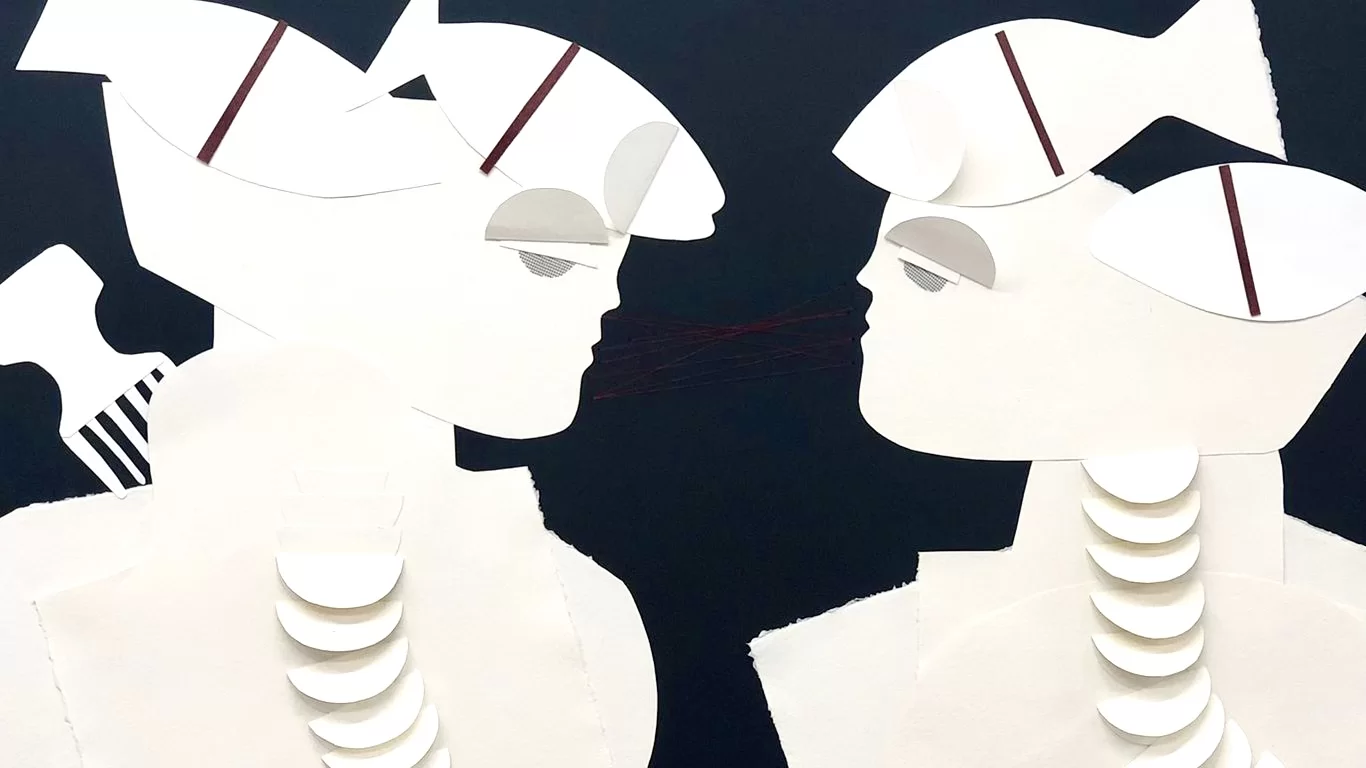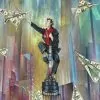Maliza Kiasuwa: Art as a weapon
June 17 to July 25, 2023
Morton Fine Art Washington, D.C.
location (52 O St NW #302)
Morton Fine Art is pleased to present Art as a weapon, an exhibition of mixed-media collage and sculpture by artist Maliza Kiasuwa. Based between Brussels, Belgium and Naivasha, Kenya, Kiasuwa’s collage practice blends locally available materials with cultural referents. At once reflecting contemporary globalization and reinvesting in traditional object-based animism, Kiasuwa’s practice continues to expand in the years following her decisive move into paper-based collage.
The artist’s second solo exhibition with the gallery, Art as a weapon will be on view from June 17 to July 25, 2023 at Morton Fine Art’s Washington, D.C. location (52 O St NW #302).
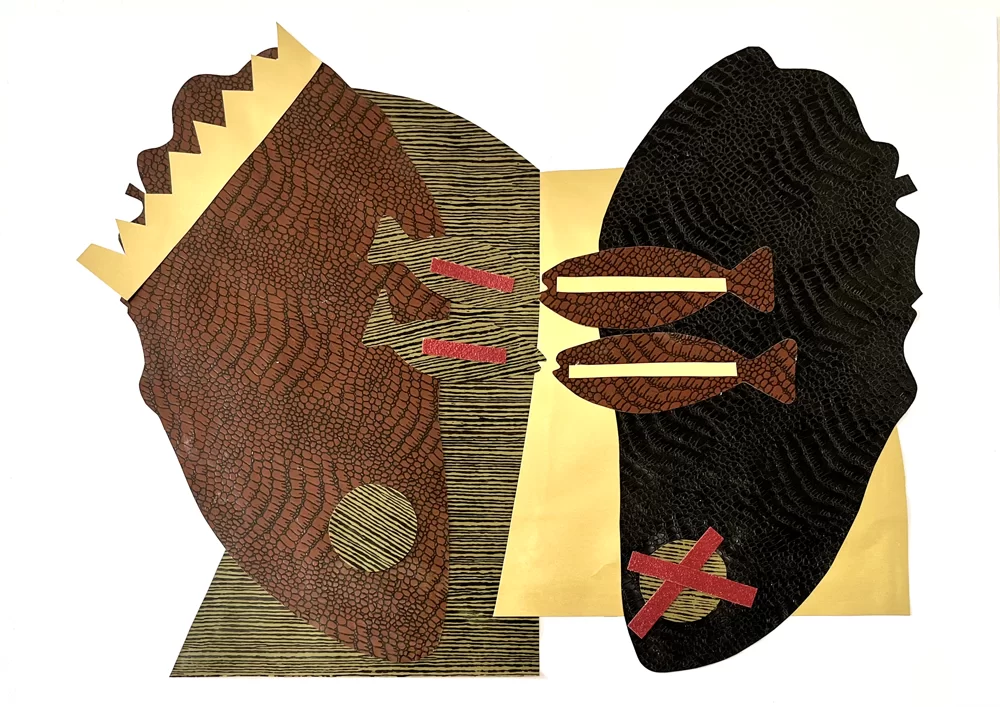
Paper and sand paper
Courtesy of the artist and Morton Fine Art
An artist with a longstanding practice rooted in found objects and the histories that inscribe them, Kiasuwa uses thread to stitch disparate materials into an interlacing dialogue. Her works often simultaneously depict and simulate a vision of exchange between parties that—while surprising or possibly dissonant in material—are imbued with a sense of harmony and dignity in form. Moving only recently into paper-based collage, Kiasuwa considers this new body of work a stylistic breakthrough in her career as an artist, unlocking new possibilities of implication and gesture.
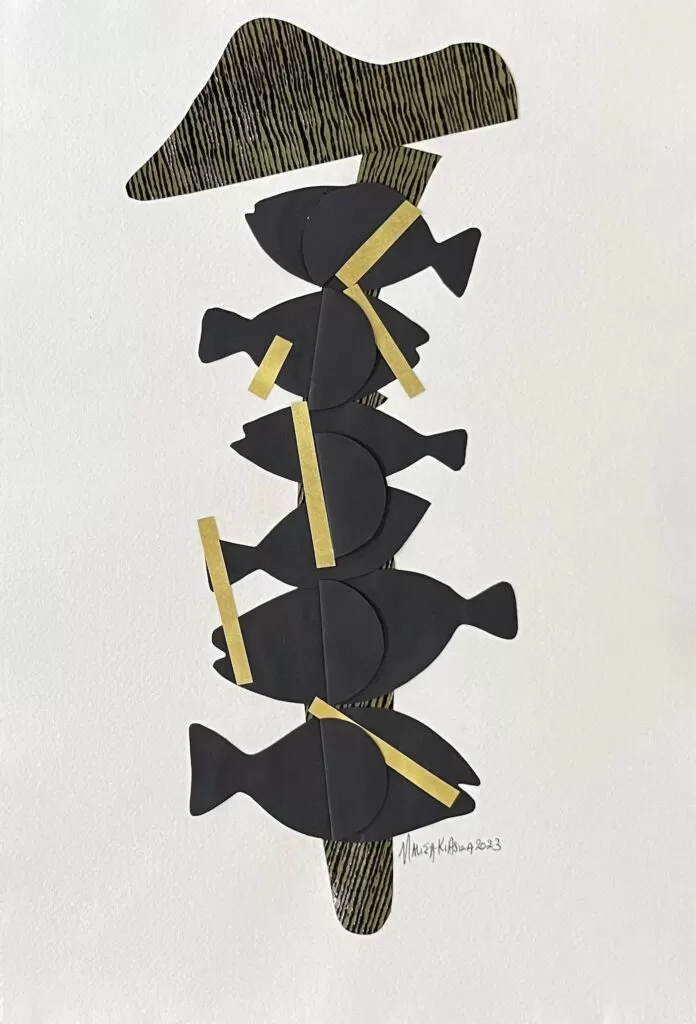
16.5 x 12.5 in.
Collage on paper
Courtesy of the artist and Morton Fine Art
Of Congolese-Romanian heritage, Kiasuwa’s formal collage arrangements are indebted to a fusion of Christianity and animism that inform African culture. Traveling and living between Africa and Europe, Kiasuwa has been inspired from a young age by this “mix of the sacred,” including the talismanic qualities of everyday objects, as well as the strong, sometimes shocking contrasts between natural beauty and human intervention in the region. Working with these influences, the artist’s compositions evoke stances of power while remaining culturally unfixed, allowing for multiple interpretations to exist within their totemic arrangements.
For example, in Kiasuwa’s “Talisman” series, approachable icons make for contradictory readings, thanks to the artist’s cunning arrangement of cut-outs resembling fish. Lake Naivasha, on which the eponymous city depends, has recently been a site of local conflict as pollution, overfishing and climate change are met with government and humanitarian intervention. The many Naivashans who depend on fishing for sustenance have grown frustrated by the decreasing size of available fish in the lake, and environmental restrictions have led to open conflict with the authorities. Kiasuwa invokes these recent issues in open dialogue with the more typically Western—and Biblical—interpretation of the iconography as a symbol for abundance.
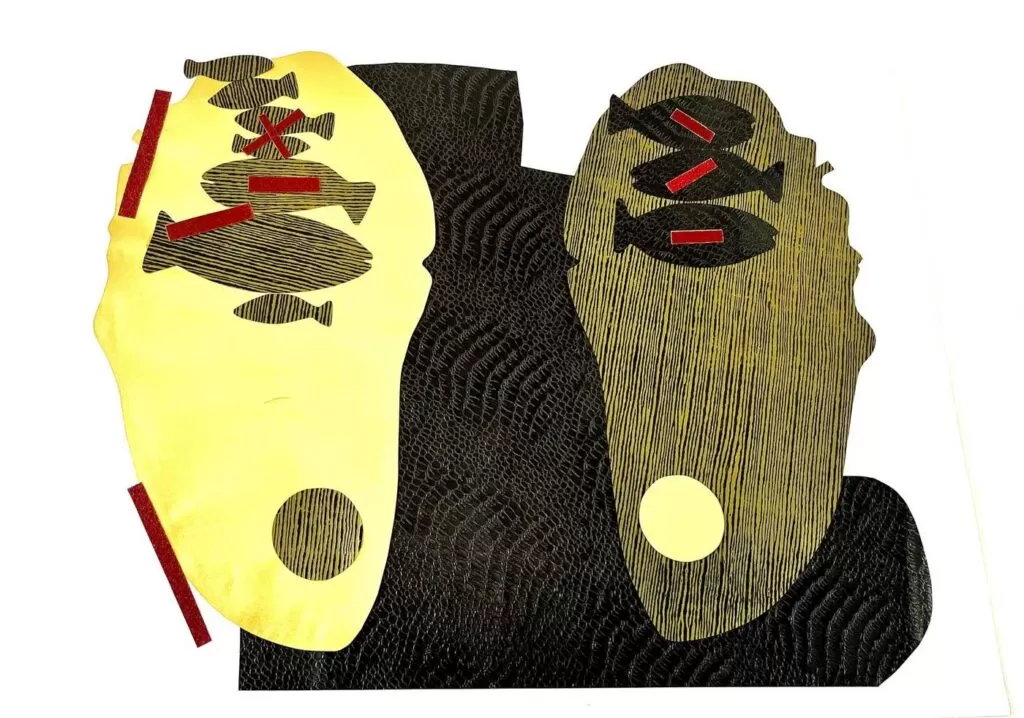
23 x 16.5 in.
Paper and sand paper
Courtesy of the artist and Morton Fine Art
The artist’s conjoining series “Intersection” and “Paradox” seem to enact this process of symbolic suggestion and conversation, in both its possibilities and limits, by utilizing another familiar yet charged visual typology: the African mask. With her deft use of simple shapes and subtle curves, Kiasuwa constructs arrangements that seem to evoke the entire sweep of art history associated with this mask design, from the traditional power figures of Central African statuary to the bold-faced appropriation of so-called “primitivist” European Modernism.
Constructing stripped-back depictions of ambiguous encounters, again with fish imagery seemingly resting on each subject’s mind, the artist creates indicative works free from simple lessons. Her evocative tableaux simultaneously inspire association while provoking us to ponder what subjectivities may hide behind one another’s masks.
©2023 Maliza Kiasuwa, Morton Fine Art


